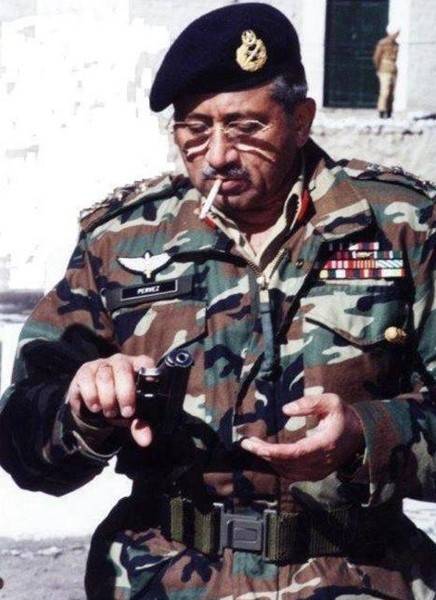
The death of a dictator, especially one who has inflicted immense cruelty and suffering upon countless individuals, should not be celebrated. Instead, it should serve as a sombre reminder of the tremendous injustices committed under their rule and the need for accountability and justice. The fact that such individuals often die of old age, comfortably surrounded by their wealth and luxuries, without ever facing the consequences for their actions is a painful injustice for those who suffered at their hands. The victims and their families are left to grapple with the aftermath of the atrocities committed against them, often with little to no recourse for justice. The recent passing of former Pakistani President Pervez Musharraf without facing the consequences for his actions is a painful reminder of the ongoing struggle for justice and accountability.
Musharraf's death also lays bare the absolute divide of opinions (and memory) between the privileged and not-so-privileged. The privileged side of Pakistan still considers the former dictator a hero, despite the reality of the suffering endured by the victims of his crimes. This blindness to the truth is a testament to the deep-seated prejudices and biases that still exist in the country and a reflection of the systemic failures to hold those in power accountable for their actions.
Today, the legacy of Musharraf's dictatorship lives on, with many of the victims still waiting for justice and seeking recognition for their suffering. Yet the privileged few continue to praise and lionize Musharraf, seeing him as a savior of the country rather than a ruthless dictator who trampled on the rights of the people. This selective memory and disregard for the truth is a hallmark of the privilege and entitlement that has come to define the mainstream discourse in Pakistan, which is blind to the reality of the suffering of those who have been marginalized and oppressed by the state. This is a sad testament to the systemic inequalities that exist in the country and the ongoing struggle for justice and equality that must be waged by the people of Pakistan.
Throughout his rule, Musharraf was accused of numerous human rights abuses, including extrajudicial killings, forced disappearances, the murder of former Prime Minister Benazir Bhutto, and violations of civil liberties. Despite these allegations, and even after his conviction for treason, he was able to evade justice and live out his final years in comfort and security. The victims and families of those affected by Musharraf's actions deserve justice and accountability. Their struggle for justice must not be forgotten or ignored, even in the face of the former dictator's death. Pervez Musharraf may have left the political stage, but the legacy of his crimes against the people of Pakistan lives on. Musharraf's actions will forever be etched in the nation's collective memory. It is unacceptable that individuals who have committed the most heinous crimes against humanity can evade accountability.
It is time for the privileged communities within the country to confront the truth about Musharraf's dictatorship and to acknowledge the suffering endured by the victims of his crimes. This is a necessary step towards building a better future for Pakistan, one in which justice, equality, and human rights are respected and upheld for all its citizens. Until then, the shadow of Musharraf's dictatorship will continue to cast a dark cloud of injustice over the country, and the wounds of the past will remain unhealed.
Musharraf's death also lays bare the absolute divide of opinions (and memory) between the privileged and not-so-privileged. The privileged side of Pakistan still considers the former dictator a hero, despite the reality of the suffering endured by the victims of his crimes. This blindness to the truth is a testament to the deep-seated prejudices and biases that still exist in the country and a reflection of the systemic failures to hold those in power accountable for their actions.
Today, the legacy of Musharraf's dictatorship lives on, with many of the victims still waiting for justice and seeking recognition for their suffering. Yet the privileged few continue to praise and lionize Musharraf, seeing him as a savior of the country rather than a ruthless dictator who trampled on the rights of the people. This selective memory and disregard for the truth is a hallmark of the privilege and entitlement that has come to define the mainstream discourse in Pakistan, which is blind to the reality of the suffering of those who have been marginalized and oppressed by the state. This is a sad testament to the systemic inequalities that exist in the country and the ongoing struggle for justice and equality that must be waged by the people of Pakistan.
Throughout his rule, Musharraf was accused of numerous human rights abuses, including extrajudicial killings, forced disappearances, the murder of former Prime Minister Benazir Bhutto, and violations of civil liberties. Despite these allegations, and even after his conviction for treason, he was able to evade justice and live out his final years in comfort and security. The victims and families of those affected by Musharraf's actions deserve justice and accountability. Their struggle for justice must not be forgotten or ignored, even in the face of the former dictator's death. Pervez Musharraf may have left the political stage, but the legacy of his crimes against the people of Pakistan lives on. Musharraf's actions will forever be etched in the nation's collective memory. It is unacceptable that individuals who have committed the most heinous crimes against humanity can evade accountability.
It is time for the privileged communities within the country to confront the truth about Musharraf's dictatorship and to acknowledge the suffering endured by the victims of his crimes. This is a necessary step towards building a better future for Pakistan, one in which justice, equality, and human rights are respected and upheld for all its citizens. Until then, the shadow of Musharraf's dictatorship will continue to cast a dark cloud of injustice over the country, and the wounds of the past will remain unhealed.

